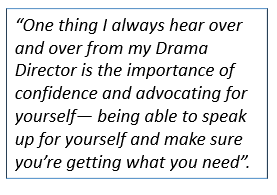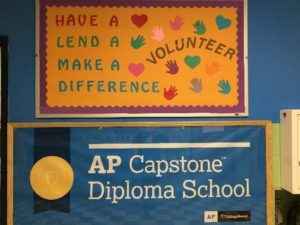Student Agency: What’s Happening in Odds-beating Schools to Foster It?
By Lisa Yu, Kristen C. Wilcox, Aaron Leo
Agency has become a popular topic in the educational research literature as its enhancement has been viewed as a way to empower young people to act on their own and others’ behalf. Defined in variable ways, agency typically encompasses the idea of a capacity or ability to act and in young people’s lives this includes engaging in setting goals, planning for one’s own future, and pursuing opportunities of interest and concern through individual or collective action.
From a critical perspective, transformational learning can only occur when individuals are encouraged to generate and use knowledge as a means for emancipatory action. In practical terms, enhancing pathways for young people to assert agency has been found to have positive effects on school engagement.
During the COVID-19 school shutdowns, learner agency has been highlighted as both a resource for engagement and a learning outcome in its own right—something to be encouraged and developed purposefully.
In some districts and schools, leaders and educators have used approaches to encourage young people to assert their agency to effect changes in and outside of school.
NYKids Student Study: New Findings on Student Agency
The two schools highlighted in NYKids’ College and Career Readiness Student Study conducted in the 2019-2020 school year– Crown Point Central High School and Malverne Senior High School exemplify these approaches.
In this study, NYKids researchers interviewed 22 eleventh and twelfth graders in Crown Point and Malverne to better understand their perspectives on how they have been prepared for life after high school and what they value about their high school experiences.
We found that these young people were provided many opportunities to express their voices, make choices, and engage in leadership experiences. Those experiences offered them a chance to explore college and career options, but in their views, and more importantly, prepared them to be responsible, mature, and well-rounded people able to advocate for themselves and confidently navigate their future adult lives.
As district and school leaders, teachers, and family members navigate the uncertainties of school re-opening, a few key findings about what affords student agency from this study are instructive.
Key Finding #1: “They Were Able to Listen to Us”

A key finding from our analysis was with regard to the role of adult listening in what students felt they can and want to do to effect some outcome in their own lives or the lives of others. For example, in rural Crown Point students pointed to ways their teachers listened to their interests and concerns and actively encouraged them to advocate for themselves and things they care about. Students expressed that adult listening and encouragement to advocate for oneself is important in helping them navigate their futures whether in college, the workplace, or civic life.
Key Finding #2: We are Treated Like “Adults”
The eleventh and twelfth graders we interviewed in both schools reported that they were urged to speak up about difficult and complicated issues ranging from topics such as sexual assault to mental health. Being treated like “adults” – as a student in Malverne put it – made them feel more comfortable and open with their teachers and well-prepared to engage in dialogue with those who may not share their same views.

Key Finding #3: “I Definitely Felt More Powerful at That Moment”
Beyond learning to advocate for oneself, others, and be invited into dialogue on controversial and important issues, the young people we interviewed reported having a variety of opportunities to lead something of interest, even if they were not in a traditional leading organization like Student Council. In Malverne, for instance, students reported on their leadership experiences in volunteer, academic, and extracurricular activities, and how those experiences, in their views, empowered them to act on their own and others’ behalf.
A Malverne student, for example, explained, “I became the captain of the Robotics team, and I felt that being the captain, I was able to have both my voice heard and the voice of my own team be heard. So I definitely felt more powerful at that moment.”
Considerations to Encourage Student Agency When Re-opening
As students re-engage in “school” in whatever shape it takes for them this fall, NYKids Student Study points to a few important questions school leaders, educators, and family members can ask about encouraging student agency:
- Are we listening to what young people care about?
- Are we encouraging young people to advocate for themselves and others?
- Are we encouraging young people to engage in civil dialogue about controversial and important issues?
- Are we encouraging young people to lead some endeavor of interest to them?
For practical ideas to encourage student agency see EdSurge’s Remote Instruction recommendations and stay tuned for more findings and case study reports from the NYKids student study in our blogs on NYKids Facebook and Twitter.
